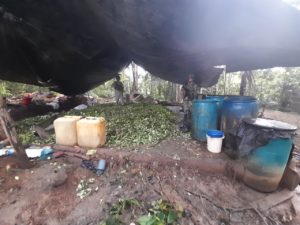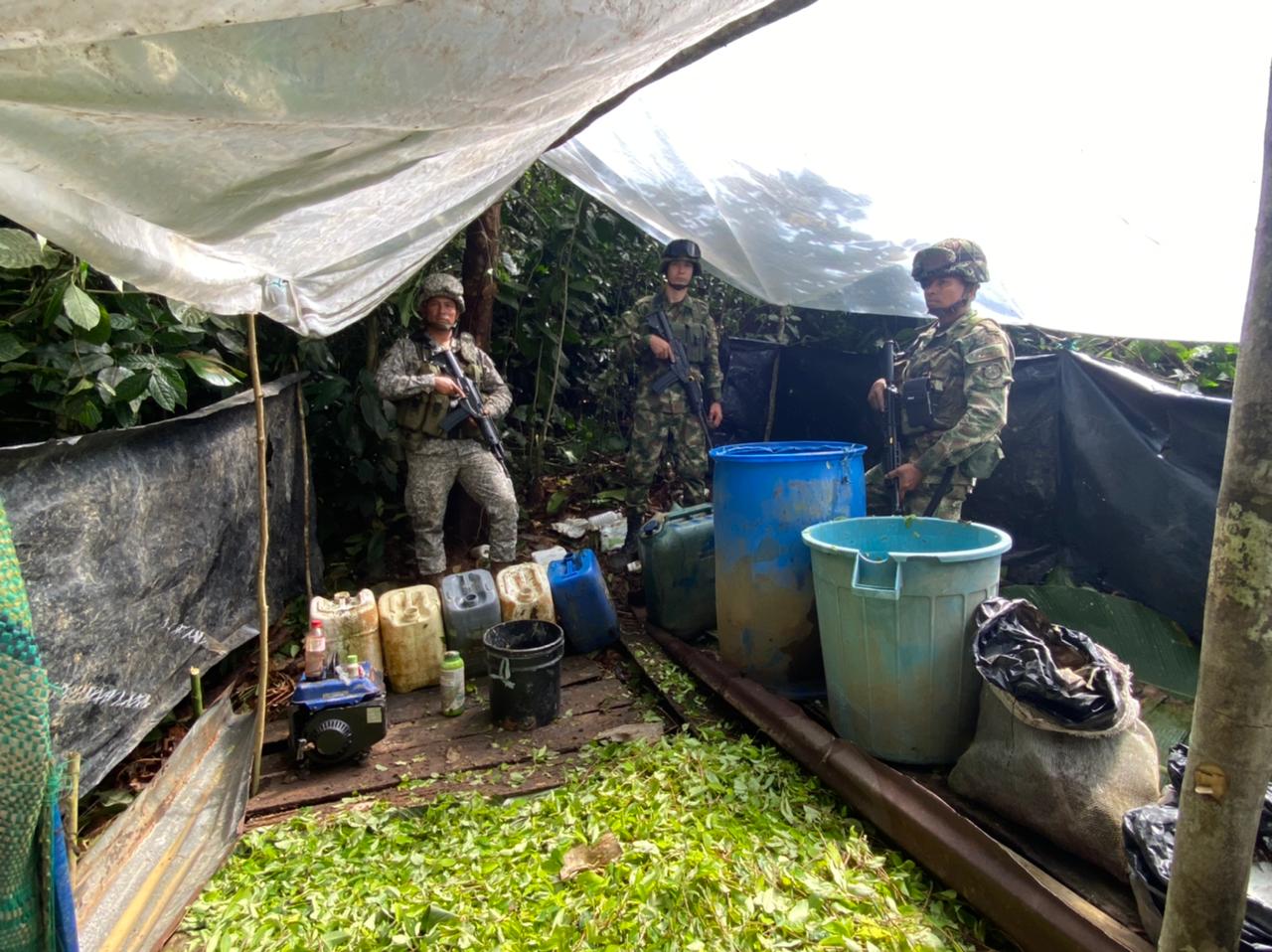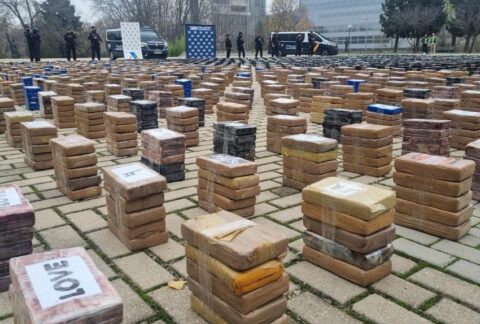The Colombian Military Forces keep up their relentless fight against narcotrafficking and criminal groups that engage in this and other related crimes. Achievements in late January and February include the capture of alias Pereita, an alleged leader of the Clan del Golfo in Chocó department, whom authorities accused of orchestrating selective killings, conducting extortion, and leading armed confrontations in the region. Authorities also seized more than 20 tons of narcotics in operations on the Pacific and Caribbean coasts of the South American country.
Another notable result was the late January destruction of 13 illegal facilities for the production of coca base paste in the Nariño municipalities of Tumaco and Roberto Payán. The facilities had a production capacity of 2 tons of coca base paste per month, the Navy said in a statement. The naval institution led the operation, with the support of the Army and the Office of the Attorney General.

Inside the narco-labs, authorities found more than 27,000 liters of partially processed coca base paste, 9,180 kilograms of chopped coca leaf, 938 kg of solid chemical precursors, 988 liters of liquid chemical precursors, and 662 liters of macerated coca leaf, among other items.
“By destroying these laboratories, we are directly affecting the most important source of funding of FARC [Revolutionary Armed Forces of Colombia] dissident groups,” Colombian Marine Corps Colonel Jaime Orlando Zambrano Chavarro, commander of the 4th Marine Infantry Brigade, told Diálogo. “They lose […] money and can no longer use it to obtain weapons, ammunition, explosives, which they use to attack and intimidate the civilian population and the Public Force; they lose logistics capacity to continue obtaining resources to produce cocaine and transport it to other countries.”
The narco-labs allegedly belong to the FARC dissident groups Alfonso Cano Western Block and Iván Ríos Front, the Navy said. Authorities estimate that the criminal groups commandeered more than 1 hectare of natural resources to build the illegal labs and polluted the water and soil with the chemical substances used to process coca base paste.
“This year, the goal is to continue increasing the effects against this transnational phenomenon to reduce and disrupt narcotrafficking crime; […] and to counter the factors of violence that it generates in our territory, caused by disputes between armed groups and FARC dissidents,” Col. Zambrano said. “Ultimately, more than surpassing last year’s seizures, which is of course our goal, we seek to reduce the collateral damage that illicit drugs generate in society.”









